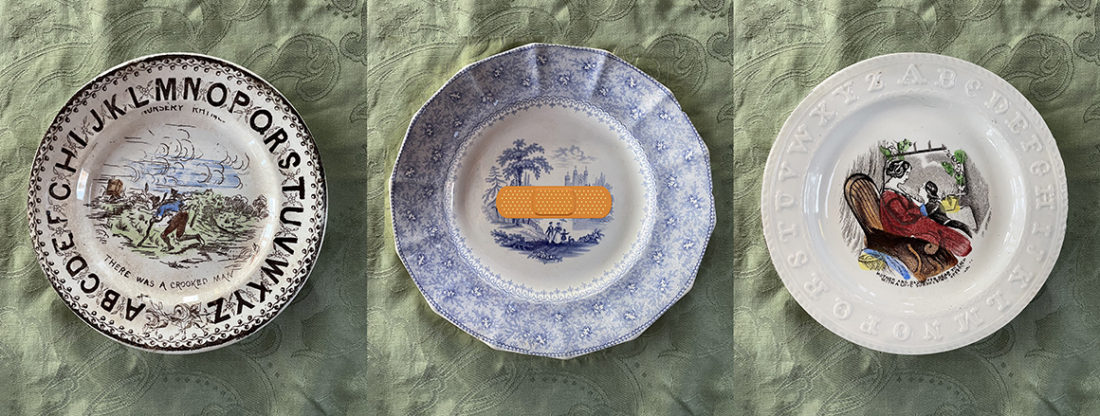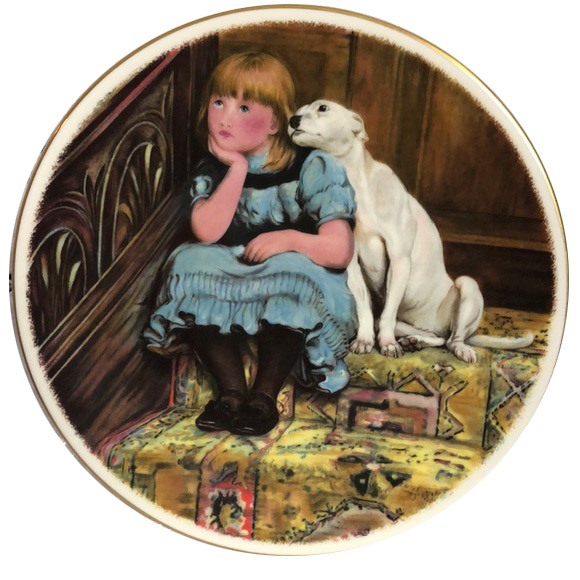Most mornings, my neighbor Julianne and I start to communicate with a stream of emojis. First, a four-leafed clover, a sun, and a hibiscus. Next, we type about protests, politicians, and what have you. Finally, she tells me if the black lab Wally is coming over, and if he is, I text back, “okay.” This means that I will send my shaggy, yellow, two-year-old retriever mix, Dudley, to her house for various and sundry pack activities.
While Julianne is a professional dog sitter and walker, I am passing through a period of joblessness. But I try to dispel my worries, to expand into the mysticism of each day. If I start to feel twitches of anxiety, I whisper to myself that nothing is urgent, that I only need to find one cause for jubilation, and I usually can right in my neighborhood.
For example, the shaggy, jet-black Wally is Dudley’s best friend. These two guys love each other so much they hold their heads high when they walk out together. They awaken from their post-walk naps just to trade places. With a sigh, they fall back asleep again.
When Julianne shows up at my door, she gazes to see if I am truly fine. And I respond the best way I can by releasing my dog down my steps. Tearing downward, Dudley looks as though he should be clattering, but he is a soft mammal issuing only footfalls and breath.
The truth is that my neighborhood not only gives me much of what I need, but also teaches me about the implications. For example, last spring Blythe’s car died on the day she had an appointment to donate plasma. I wanted to help but felt panicky because she works at our hospital. If our neighborhood had a hero, it would be her.
Of course, I did not have to offer Blythe a ride to her appointment. She was more exposed to the virus, and she knew I wanted to stay safe. But the demands of friendship have their own flow, and, as we age, it is this and only this that can make a friendship stronger. It may be this and only this that can make a life happier.
On the drive, Blythe and I wore masks. Dudley sat on the backseat, blonde hair flying in the breeze. I drove with my left hand while my gloved right-hand pushed buttons on the radio. For a moment I felt like a teenager. But then I remembered Blythe’s destination.
“You must have the antibodies,” I said.
But she said she just had excellent platelets. She had been donating platelets for years. And that did not feel dull and still doesn’t.
By the time she died last year, Julianne’s dog, Boo, was the original mystic of our neighborhood. She was so large that Julianne’s friend, Jeff, had to hold her up to get her down the stairs. The way he did this, they looked like they were dancing. And when he finally stretched Boo out on the sidewalk, her long black hair matted, you could watch her large beautiful dark eyes fall apart just a bit more into her far-away dream.
At that time, I had my old job, and Dudley was often next door when, sometimes, Boo would collapse. Then Dudley would run to Julianne and push his nose against her jeans. Julianne would scream at her angelic dog face down in her cushions or pillows.
But then a moment of grace happened on a series of occasions—Julianne found she was able to hoist Boo upright as if Boo were as light as a feather. And it was easy, Julianne told me with wonder, quite easy in the hour of Boo’s need, to do what it took, to take all the tiny actions that might save her.
- Jubilation Neighborhood - April 1, 2021

